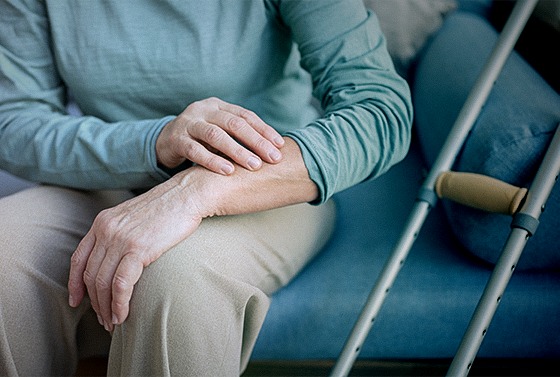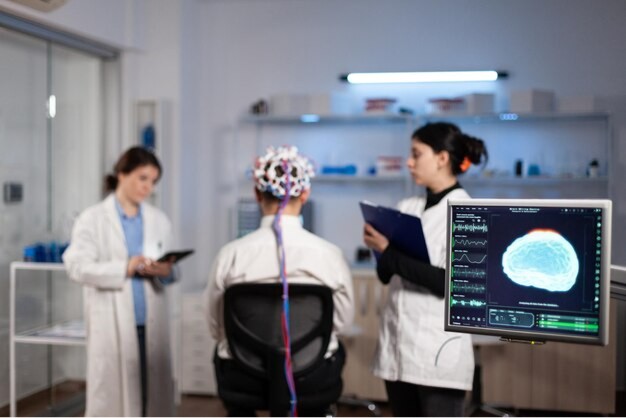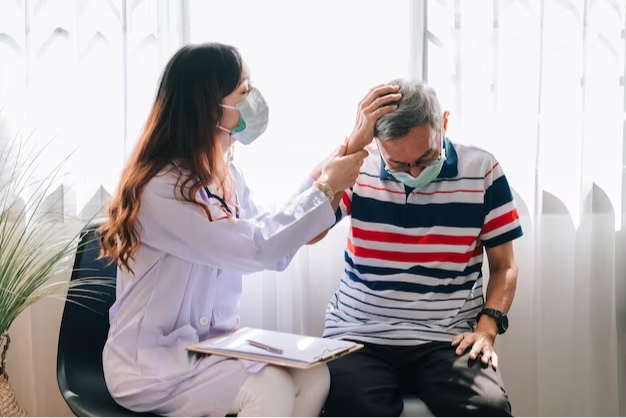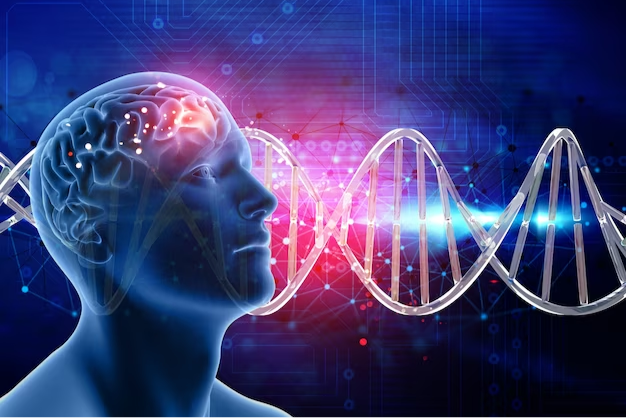Author : Dr. Vysakha K. V
Consultant - Neurology & Movement Disorder, Caritas Hospital, Kottayam
What is Parkinson’s disease?
Brain is the most complex organ in our body managing a variety of cognitive, motor and non-motor task. As like other organs, brain cells also develop degenerative disorders where in the neurons ( the cells that make up brain) gets reduced in number and the functionality subserved by the brain region affected by degeneration suffers. The most common neuro-degenerative disease is Alzheimer’s disease which causes loss of memory and is a disease of the elderly population. Parkinson’s disease (PD) is similarly caused by the degeneration and loss of neurons that help in movement and posture, mainly the speed of the same.
Patients with PD have different variety of symptoms owing to the extent of degeneration in brain. The most commonly encountered symptoms are tremor, stiffness of limbs and slowness of activities, loss of balance etc. Other symptoms seen in patients with PD include memory complains, hallucinations,mood problems, sleep disturbances, constipation and urinary symptoms.
Scientific world is still trying to decipher various mechanisms that result in Parkinson’s disease and so far the cause is not clear. Though a small proportion of patients develop PD secondary to genetic causes, the prevalence is low ( 1-2%). Certain environmental factors like exposure to pesticides, usage of well water has been implicate as causative factor. In a given individual, a combination of genetic, environmental factors contribute to the causation.
What are the symptoms of PD?
PD patients usually experience tremor of the limbs, stiffness of the limbs and slowness of the limbs, imbalancewhich interfere with their daily activities resulting in reduced quality of life. The intensity of symptoms in a particular patient can vary with some patients having predominant tremor while others may have predominant slowness. The symptoms usually start in one side of the body and later spread to other side and subsequently leads to slowing of gait, freezing of gait where patients feel their feet glued to the ground and later falls. Patients also develop various non-motor symptoms as discussed earlier.
PD is a clinical diagnosis made by the neurologist as routine structural MRI will be normal, however they may be used to exclude other causes of parkinsonism.
How to treat Parkinson’s disease?
PD is caused by degeneration of neurons that produce and store dopamine in the brain at a part called Substantia Nigra. At present, there are no treatment available to restore cells or prevent further damage of neurons. The currently available treatment modalities are aimed to relieve the symptoms and improve the quality of life. PD is treated by using medications that either get converted into dopamine ( levodopa-carbidopa) or drugs that act like dopamine ( dopamine agonist like pramipexole). There are other medications which act to optimise the effect of medications in a given patient depending on the clinical features. The mainstay of treatment is levodopa which gets converted in to dopamine in the brain. Along with dopamine supplementation, the patients usually require management of associated non – motor symptoms like anxiety, depression, sleep etc.
Are there any limitations for the medical treatment of PD?
With time, PD patients develop worsening of the symptoms in the form of “motor fluctuations” and “Dyskinesias”. Motor fluctuations are a condition where the medication weans off after a fixed time, and patients feel their symptoms ( tremor/stiffness/slowness) come back. The Time with medication effect is called “ON” and without is called “OFF”. In addition PD patients also develop dance like movement called dyskinesias while the patient experiences the benefit of drug. Certain subset of patients also find their tremor unresponsive to the medications. The doctors at this point may find it difficult to individualize the medications to give optimal benefit for the patient.
.pdf%20300X60%20PX-02-02.svg)



